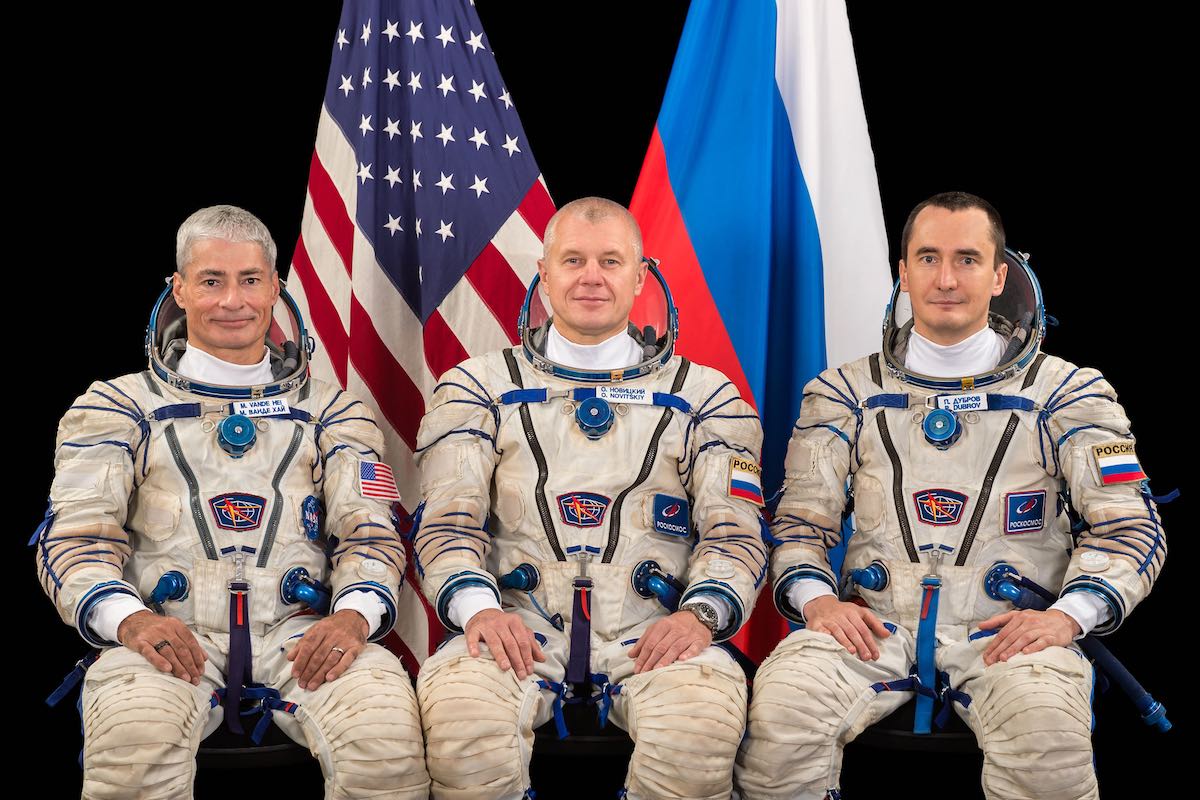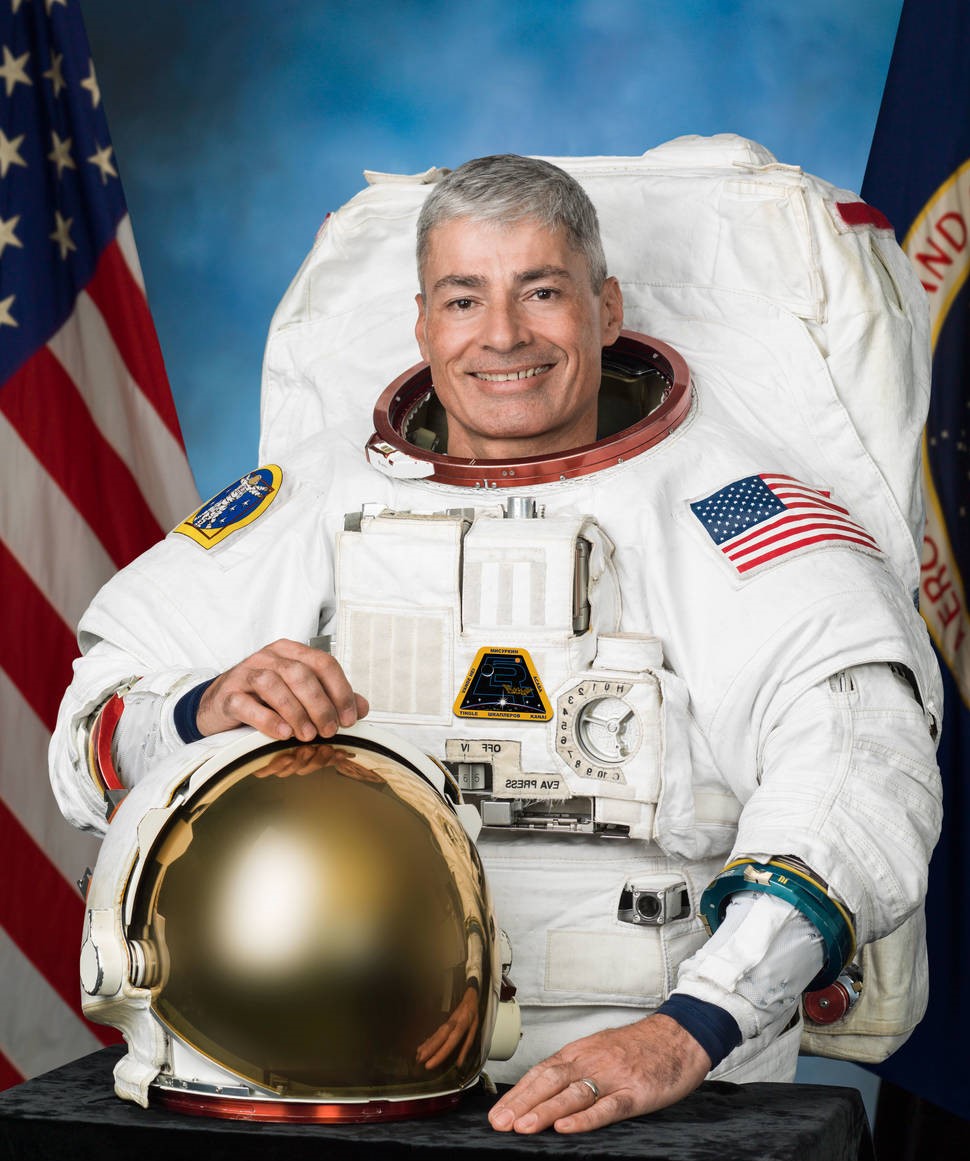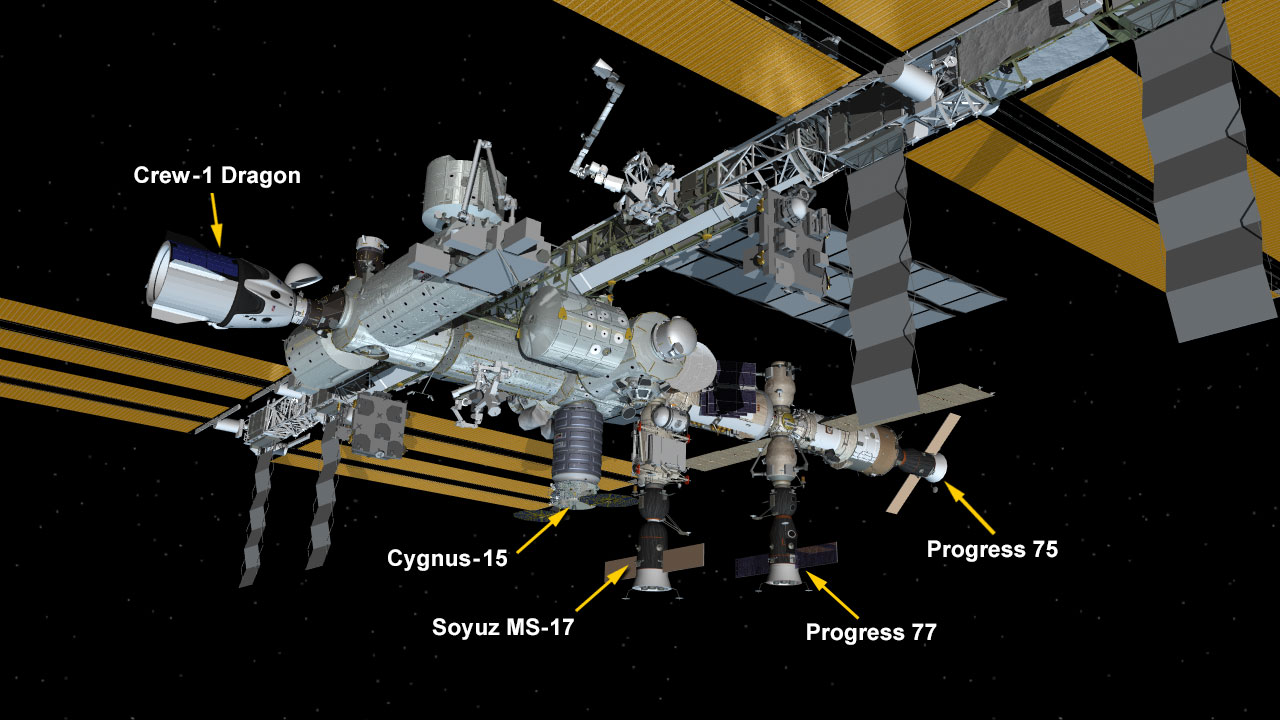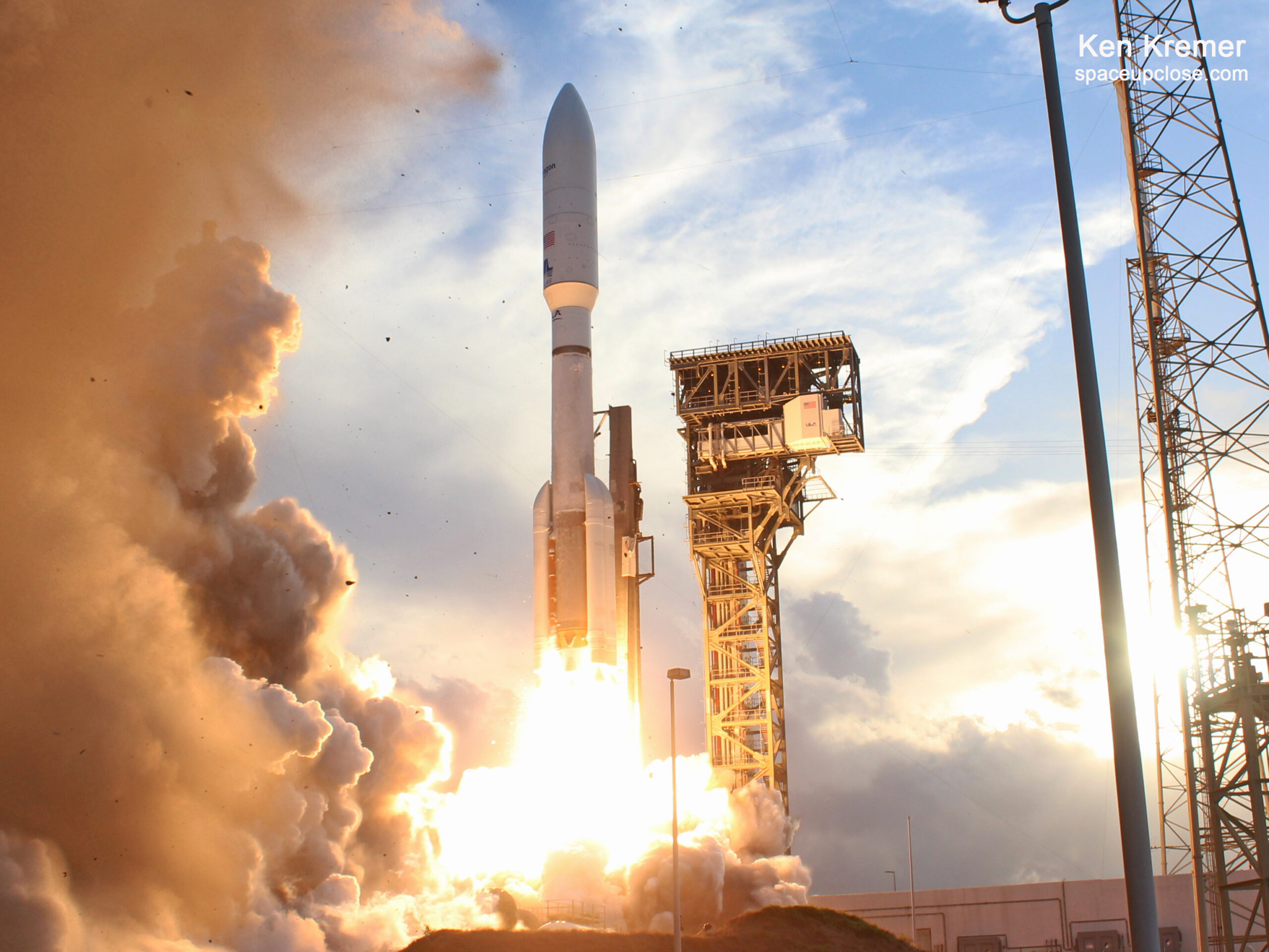
For SpaceUpClose.com & RocketSTEM
CAPE CANAVERAL, FL – In a very late in the flow change of plans NASA astronaut Mark Vande Hei has joined the crew of the next Russian Soyuz mission blasting off in less than 4 weeks time to the International Space Station – as has been rumored recently in space circles
Both NASA and Roscosmos confirmed the assignment in press releases after NASA indicated last month that the agency was seeking to place a NASA astronaut on board the Soyuz mission to maintain a US presence on the station in case of unforeseen delays to NASA’s Commercial crew missions from SpaceX and Boeing or have to make an unplanned evacuation. The seat was contracted via Houston-based Axiom Space.
“To ensure continuous U.S. presence aboard the International Space Station, NASA has signed a contract with a U.S. commercial company Axiom Space of Houston to fly a NASA astronaut on an upcoming Soyuz rotation on Soyuz MS-18, scheduled to launch April 9, NASA confirmed in a statement March 9.
Veteran astronaut Vande Hei will serve as a flight engineer joining two Russian cosmonauts on the Soyuz crew capsule for a long term mission and serving as member of the Expedition 64/65 crew.
Vande Hei was just officially assigned to the Soyuz crew along with cosmonauts Oleg Novitskiy and Pyotr Dubrov of the Russian space agency Roscosmos.
The Russian/American crew are scheduled to launch Friday, April 9, on the Soyuz MS-18 spacecraft from the Baikonur Cosmodrome in Kazakhstan.
“Mark Vande Hei of @NASA_Astronauts has been assigned to fly to the @Space_Station on the next Soyuz launch, scheduled for April 9. Tune in on Mon., March 15 at 11am ET for a mission update: go.nasa.gov/3rssEvf,” NASA tweeted
Mark Vande Hei of @NASA_Astronauts has been assigned to fly to the @Space_Station on the next Soyuz launch, scheduled for April 9.
Tune in on Mon., March 15 at 11am ET for a mission update: https://t.co/0FTLvcoR6k pic.twitter.com/WflsxCeWhn
— NASA (@NASA) March 9, 2021
A Russian cosmonaut was pulled from the mission to make way for Vande Hei at the urging of a request of NASA, said Roscosmos.
The purpose of the switch was also to continue the practice of have Russians and American fly on one another’s space vehicles for international space missions – a tradition that ended with the last Soyuz launch of the MS-17 mission in October 2020 which included NASA astronaut Kate Rubins, still on board the station.
Rubins seat was actually the last Soyuz seat that NASA paid for to the tune of about $90 million and Vande Hei was her backup on that flight along with Novitsky and Dubrov the other backup members of the crew.
In this case NASA is apparently not paying for the Soyuz seat which was arranged by Houston-based Axiom Space, said Roscosmos and NASA.
“Because the services [for the Soyuz seat] are determined to be of comparable value to both parties, the contract contains no exchange of funds,” said NASA.
To date Russians have not yet been assigned to fly on NASA Commercial Crew mission.
“Roscosmos State Corporation is returning to the practice of international launches, and the next flight will take place on April 9, 2021. Together with Roscosmos cosmonauts Oleg Nowitzki and Peter Dubrov, NASA astronaut Mark Vande Hai will travel to the International Space Station,” said Roscosmos.
“The change in the crew was made at the urging of the American side. NASA voiced its wishes only at the end of 2020, and therefore the Russian side had to change the already agreed flight program. Roscosmos is making this decision, reaffirming its commitment to joint arrangements and the spirit of sharing the International Space Station.”
“The tradition of international crews, which has existed for more than twenty years, will be continued again.”

The SpaceX Crew-1 mission astronauts are currently serving aboard the ISS. Crew-2 is scheduled to replace them launching NET April 22.
“NASA is continuing its practice of flying integrated crews to ensure safe and continuous operations on the space station. Securing this additional Soyuz seat assures at least one U.S. crew member will be aboard the International Space Station at all times to maintain safe operations of the orbiting laboratory. Flying integrated crews assures the back-up capability in the event of a problem with any crew spacecraft or an emergency aboard the station that requires a crew to return to Earth sooner than planned,” said NASA.
“Vande Hei’s flight on the Russian Soyuz will ensure continuous presence on the station if the Crew-2 mission launch is delayed or an event occurs while Crew-2 is in-orbit that requires a premature return.”
Vande Hei was selected as an astronaut in 2009 and is a veteran having flown to space once before on Sept 13, 2017 as an Expedition 53/54 crew member and spent 168 days in space.
During that mission he conducted four spacewalks, totaling 26 hours and 42 minutes, before his return to Earth Feb. 28, 2018.
During his 6 month mission Vande Hei will work on hundreds of experiments during to benefit life on Earth and learn more about living in space, says NASA.
“The space station is a critical testbed for NASA to understand and overcome the challenges of long-duration spaceflight and those insights gained will help send humans to the Moon and eventually to Mars.”
Among the science the crew will conduct during Vande Hei’s mission are studies on cotton root systems and Alzheimer’s disease, and a technology demonstration of a portable ultrasound device.

Watch Ken’s continuing reports about ISS, Artemis and NASA missions, SpaceX, Starlink, Commercial Crew and Starliner and Crew Dragon and onsite for live reporting of upcoming and recent SpaceX and ULA launches including Crew 1 & 2, Demo-2, ISS, X-37B, Solar Orbiter, Mars 2020 Perseverance and Curiosity rovers, NRO spysats and national security missions and more at the Kennedy Space Center and Cape Canaveral Space Force Station.
Stay tuned here for Ken’s continuing Earth and Planetary science and human spaceflight news: www.kenkremer.com –www.spaceupclose.com – twitter @ken_kremer – email: ken at kenkremer.com
Dr. Kremer is a research scientist and journalist based in the KSC area, active in outreach and interviewed regularly on TV and radio about space topics.
………….
Ken’s photos are for sale and he is available for lectures and outreach events
Please consider supporting Ken’s work by donating at Patreon:
https://www.patreon.com/kenkremer
x



